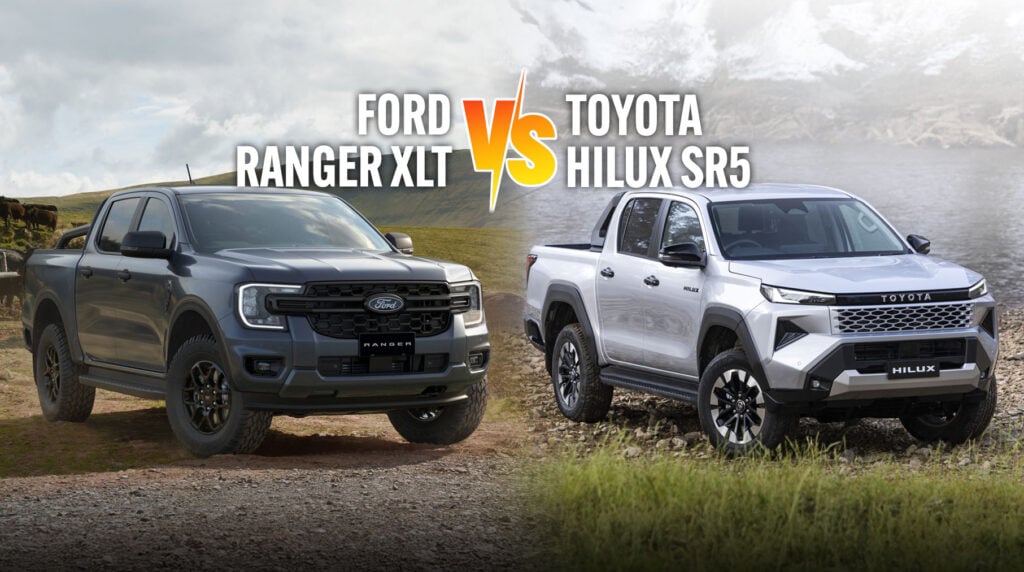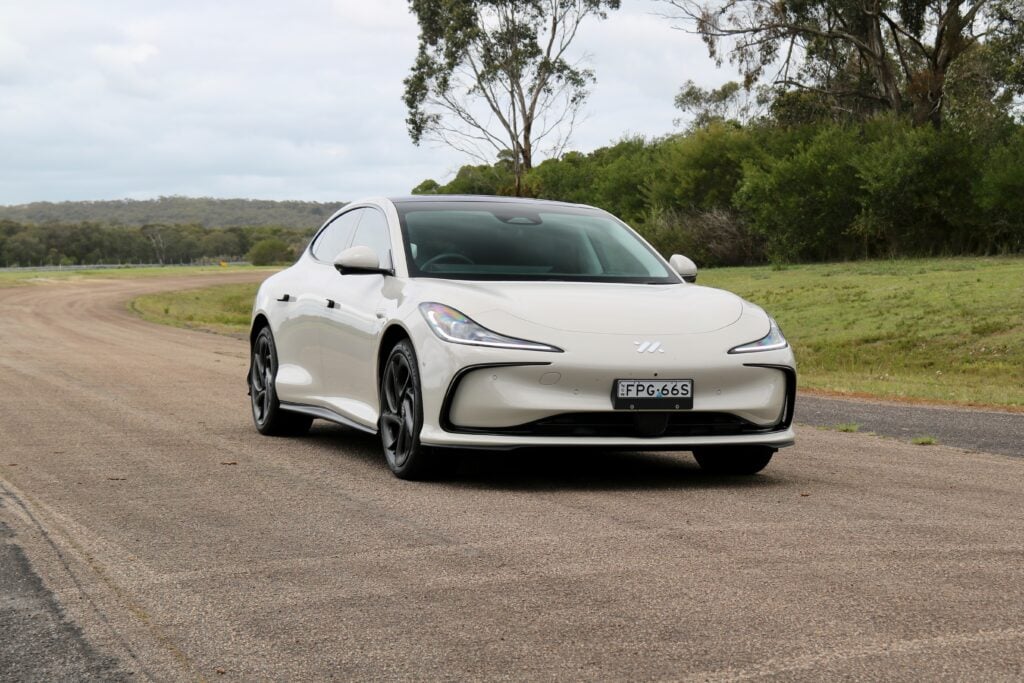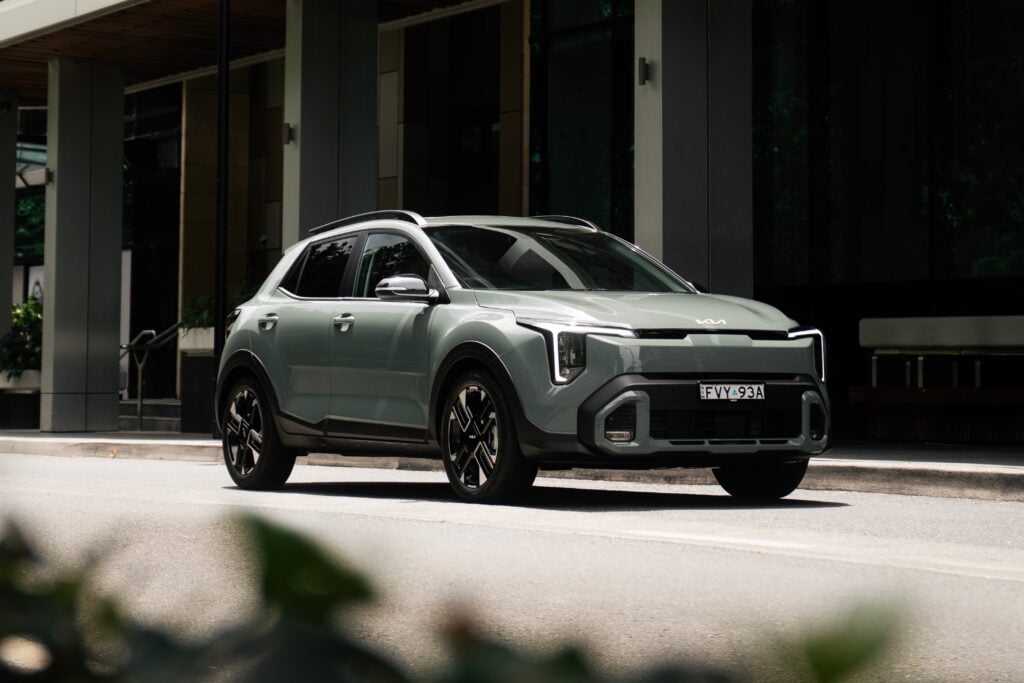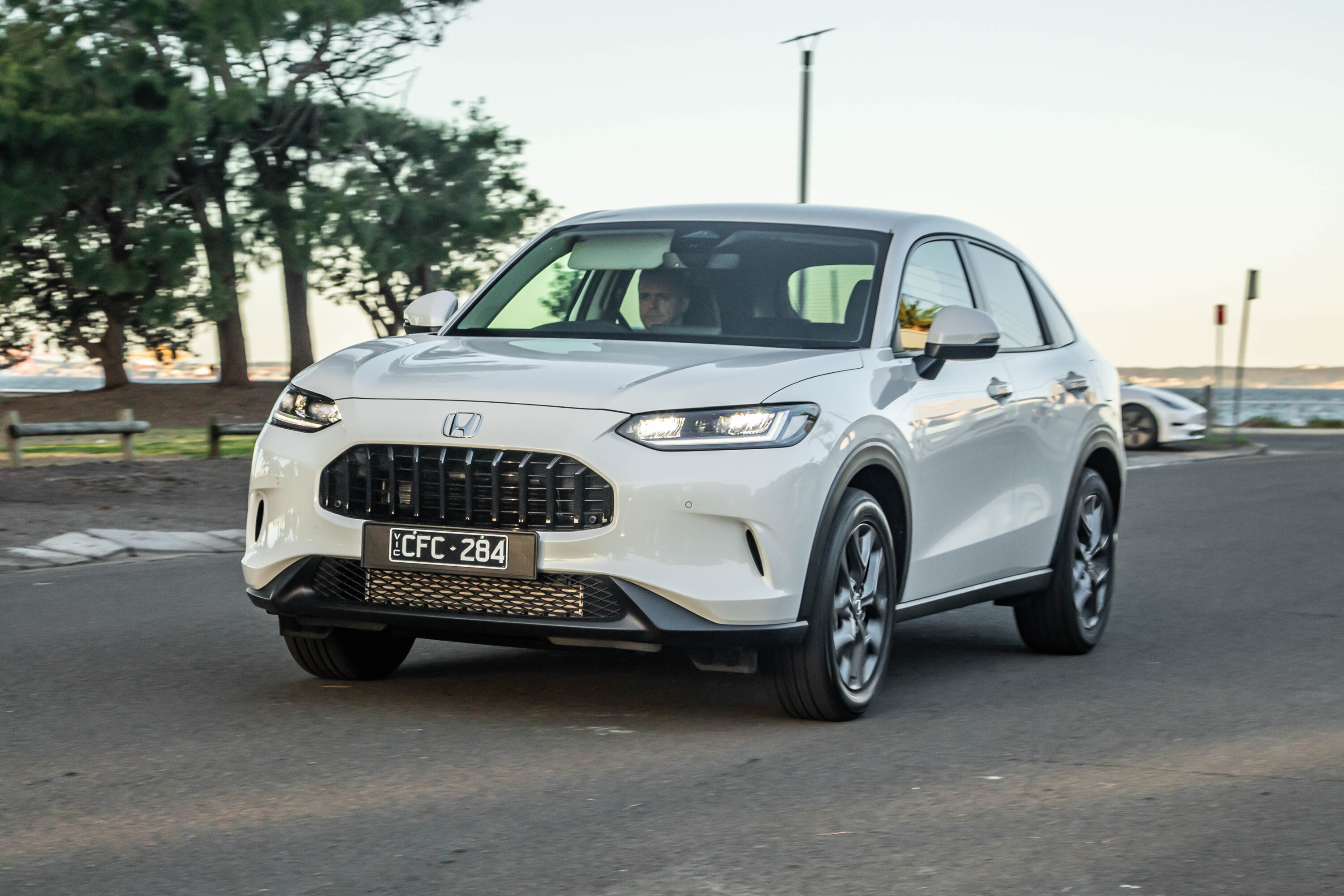
Score breakdown
Things we like
- Lovely interior
- Fun chassis
- Impressive driveline
Not so much
- Short service intervals
- Fidgety urban ride
- Missing safety gear
Middle children are often the forgotten ones, according to people like my father-in-law who loves to label people.
It’s kind of the case in the car world – that middle machine is the one that often is the best value, taking all the good bits of the top and bottom models and delivering the best of it all. No, I am not a middle child, but thanks for the accusation.
After a week with a top-of-the-pile Honda ZR-V VTi-LX, I’ve come down a rung to the mid-spec VTi-L. I’m not absolutely certain that the middle child is the one to go for because while it builds on the pretty good spec of the base VTi-X, I’m not sure the substance is there to justify the price difference. Because while there’s more, I’m not sure there’s enough of the more and the ZR-V VTi-L might be the exception to the rule.
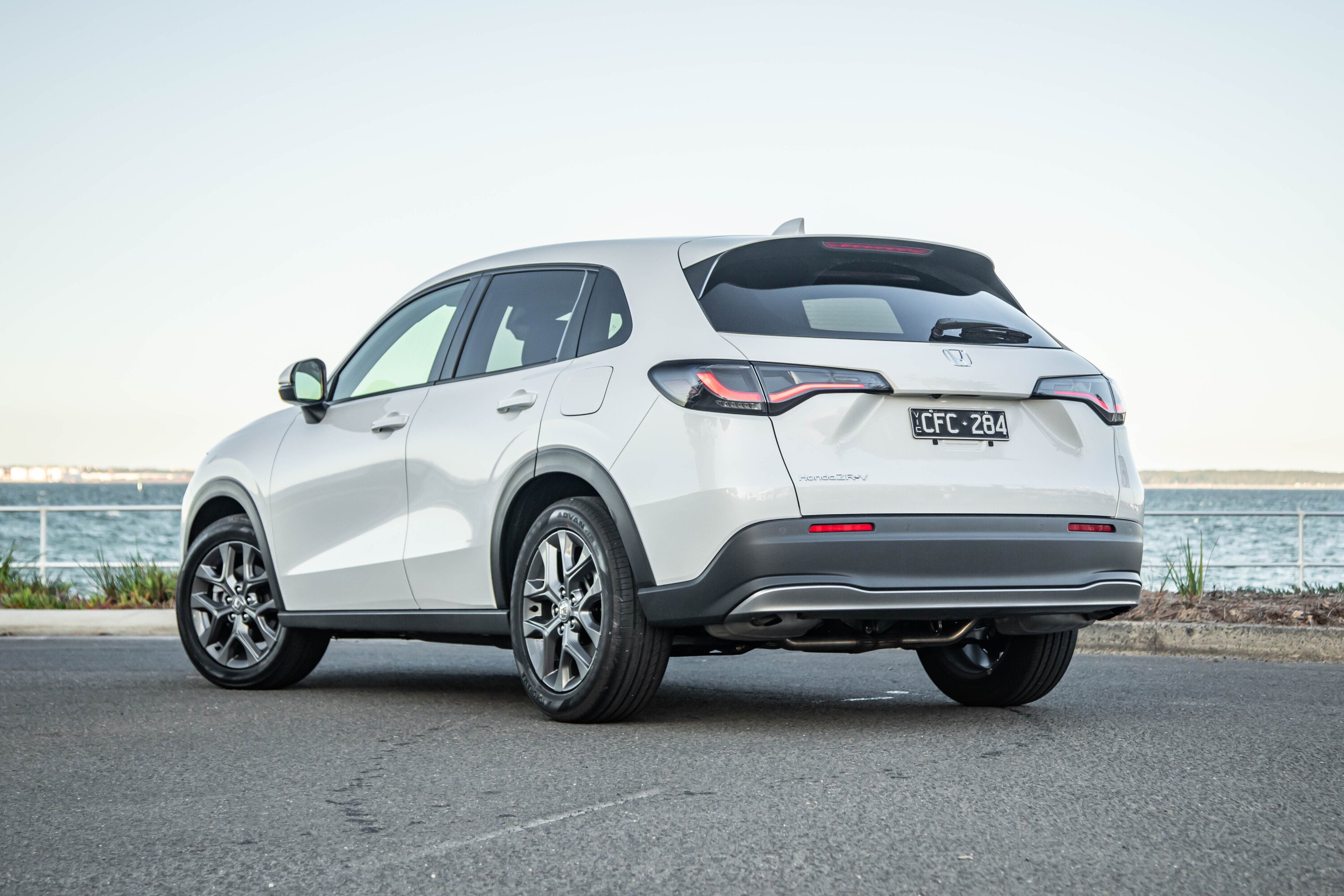
JUMP AHEAD
- How much is it, and what do you get?
- How do rivals compare on value?
- Interior comfort, space and storage
- What is it like to drive?
- How is it on fuel?
- How safe is it?
- Warranty and running costs
- VERDICT
- Specifications
How much is it, and what do you get?
The VTi-L – Honda insists on this very 1990s-vibe spec nomenclature – is the middle child of the petrol triplets at $43,200 drive-away. That makes it three grand more than the entry-level and $5300 cheaper than the VTi-LX I tested a while back.
I remain flummoxed, flabbergasted and something else starting with F that communicates a general dismay that there isn’t a hybrid version of the two lower specifications. And you can add the lack of all-wheel drive to the list.
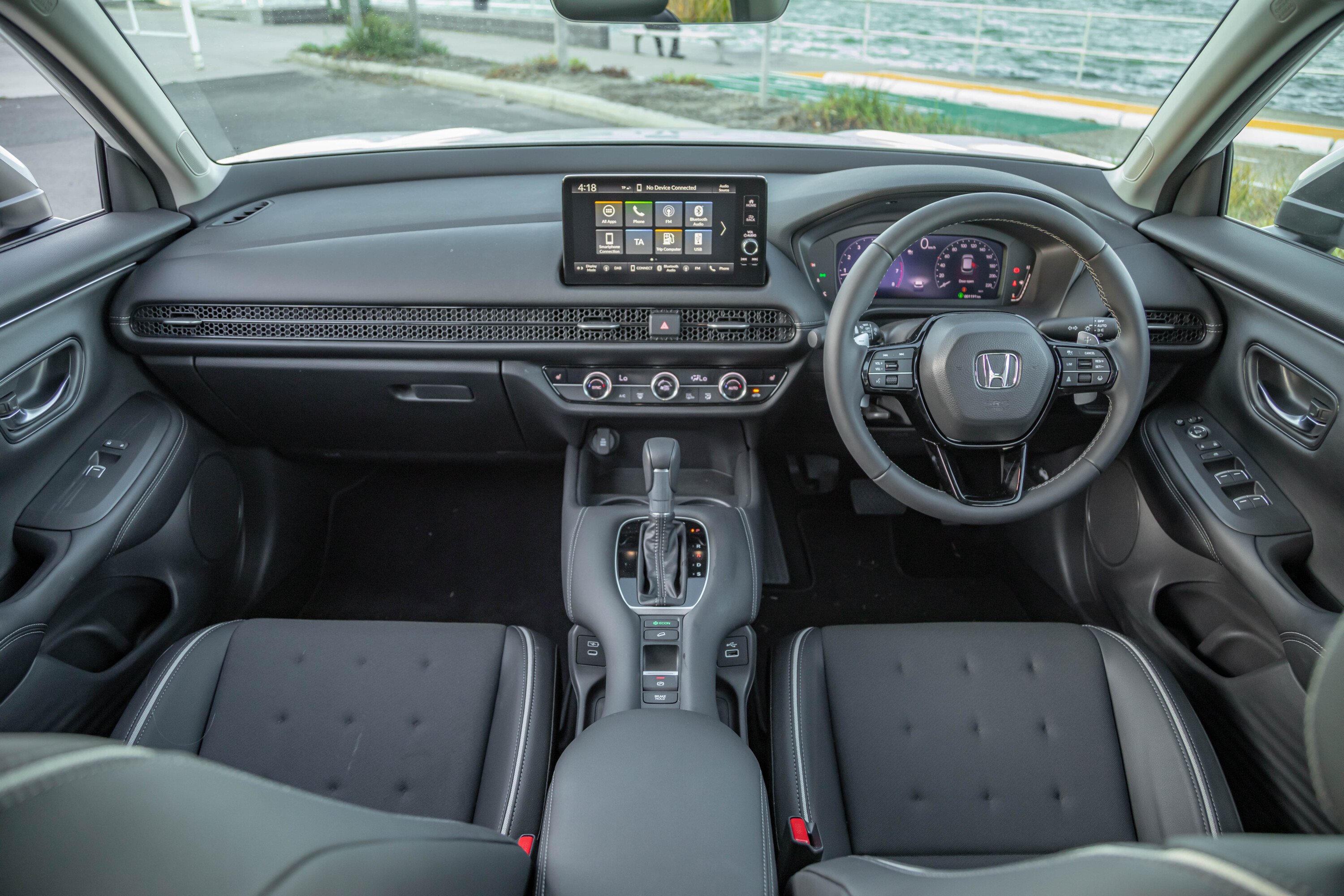
| 2023 Honda ZR-V VTi-L standard features | |
|---|---|
| 18-inch alloy wheels (silver) | Heated and powered front seats |
| Eight-speaker audio system | Reversing camera |
| Satellite navigation | Auto adaptive LED headlights |
| Wireless phone charger | Reverse auto-tilt function for side mirrors |
| Hands-free electric tailgate with walk-away close | Heated and powered front seats |
| Leather seats with cloth inserts | Air purification system |
| 9.0-inch touchscreen | Auto wipers |
| 10.25-inch digital dashboard | Heated side mirrors |
| Front and rear parking sensors | Wired Android Auto |
| Wireless Apple CarPlay | Dual-zone climate controls |
There is a lot to like about this version of the ZR-V but a couple of annoyances pop up.
While it has wireless Apple CarPlay, it goes without the LX’s wireless charging pad. It also loses blind-spot monitoring, which isn’t too bad but it does lose reverse cross-traffic alert which is very bad because I think all cars should have it.
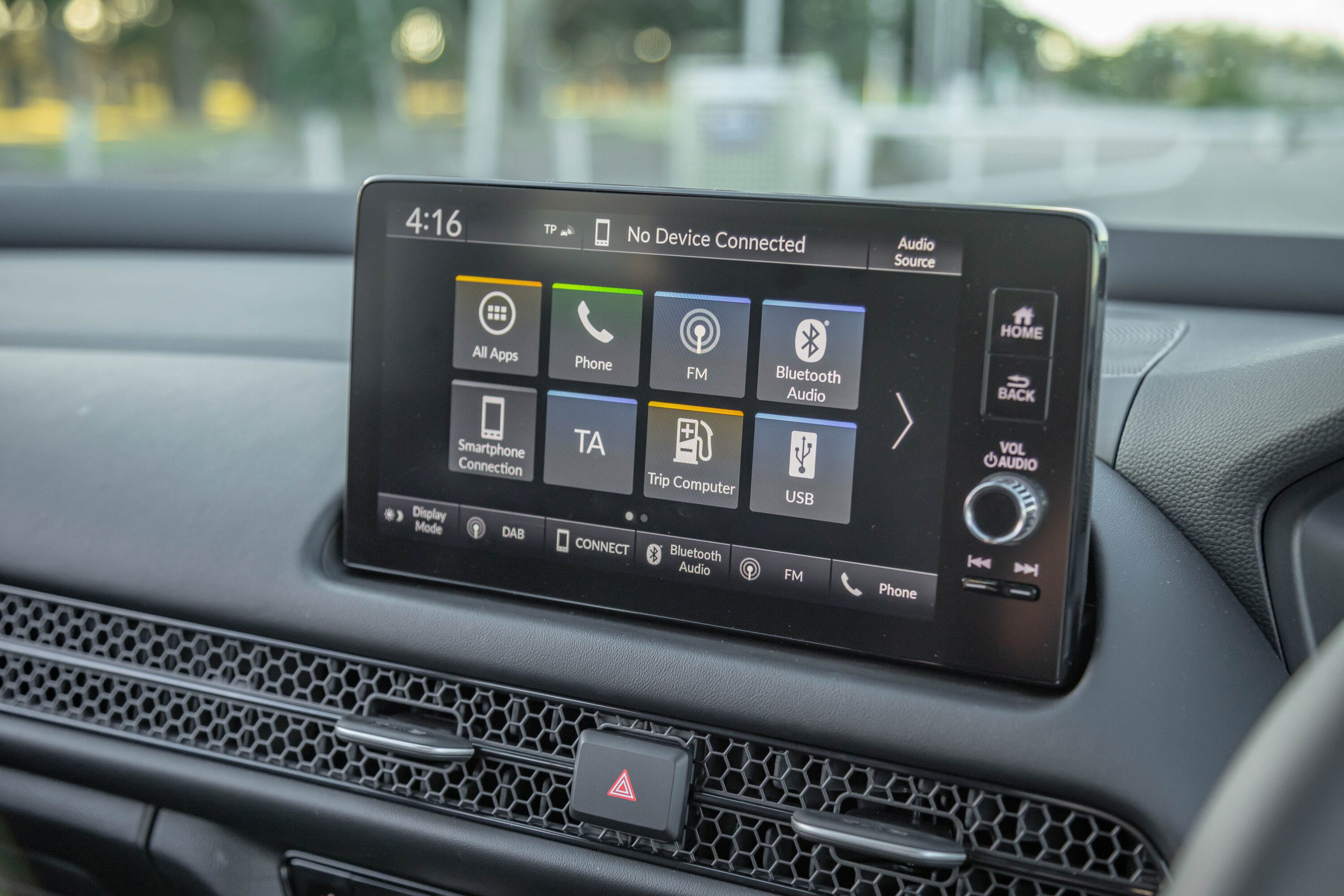
Honda’s Connect functionality is offered with a five-year subscription but there’s nothing startling to suggest you should pay for it, so it’s a nice-to-have. It’s certainly more generous than Toyota’s twelve-month subscription on a RAV4, for example.
Back on the good side of the ledger is the fact that you don’t have to pay extra for premium paint.
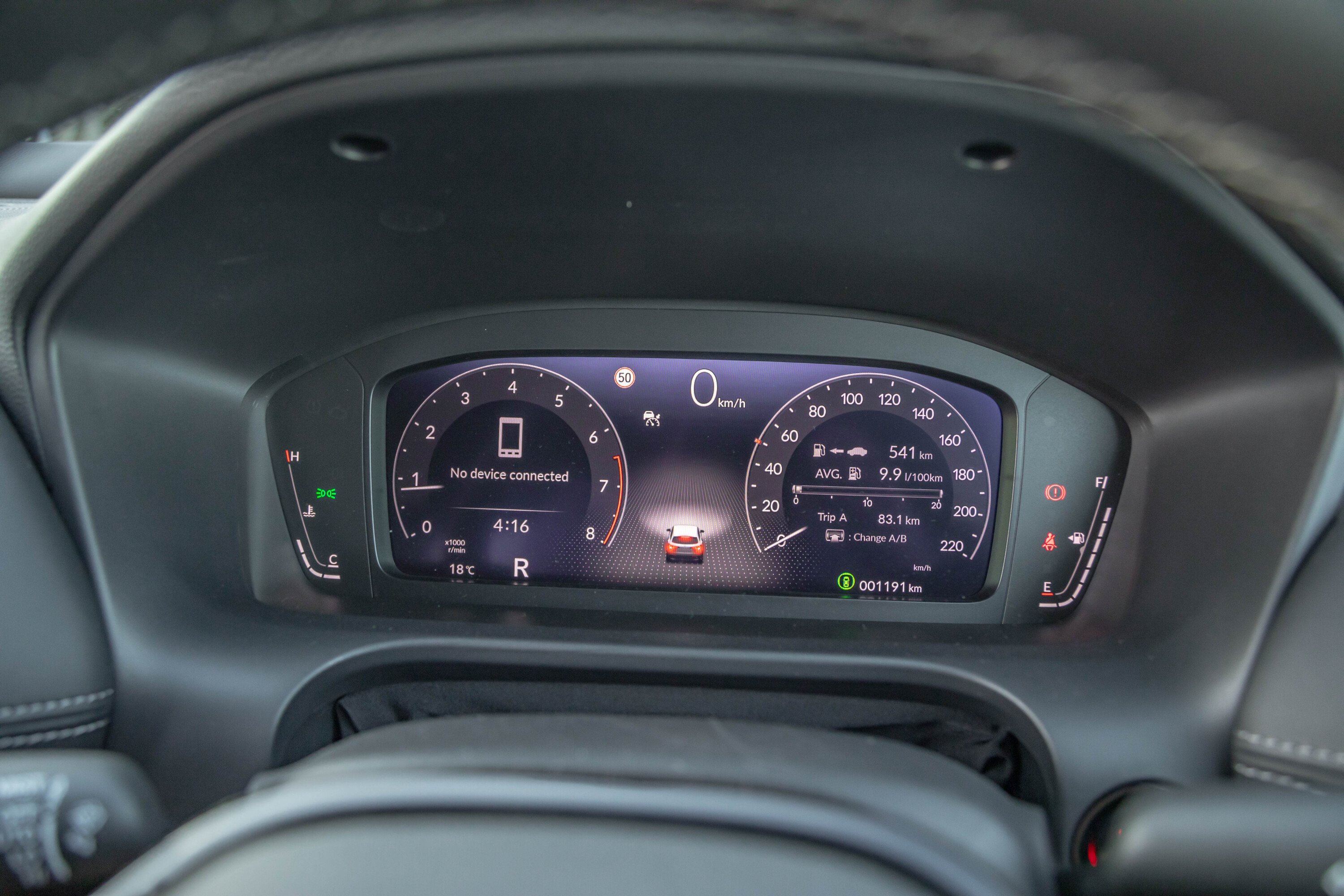
How do rivals compare on value?
This part of the market is pretty busy and dominated by Toyota with the RAV4.
For the same price as the ZR-V VTi-L you can have a RAV4 GXL hybrid or a naturally aspirated 2.0-litre for a few grand less. The RAV is bigger with a longer wait time to match and the kicker is that the Honda’s price is drive-away whereas the Toyota’s is before on-road costs.
Mazda’s CX-5 comes close to the drive-away price with the CX-5 G25 Maxx Sport and for a few grand more you can get the all-wheel drive version.
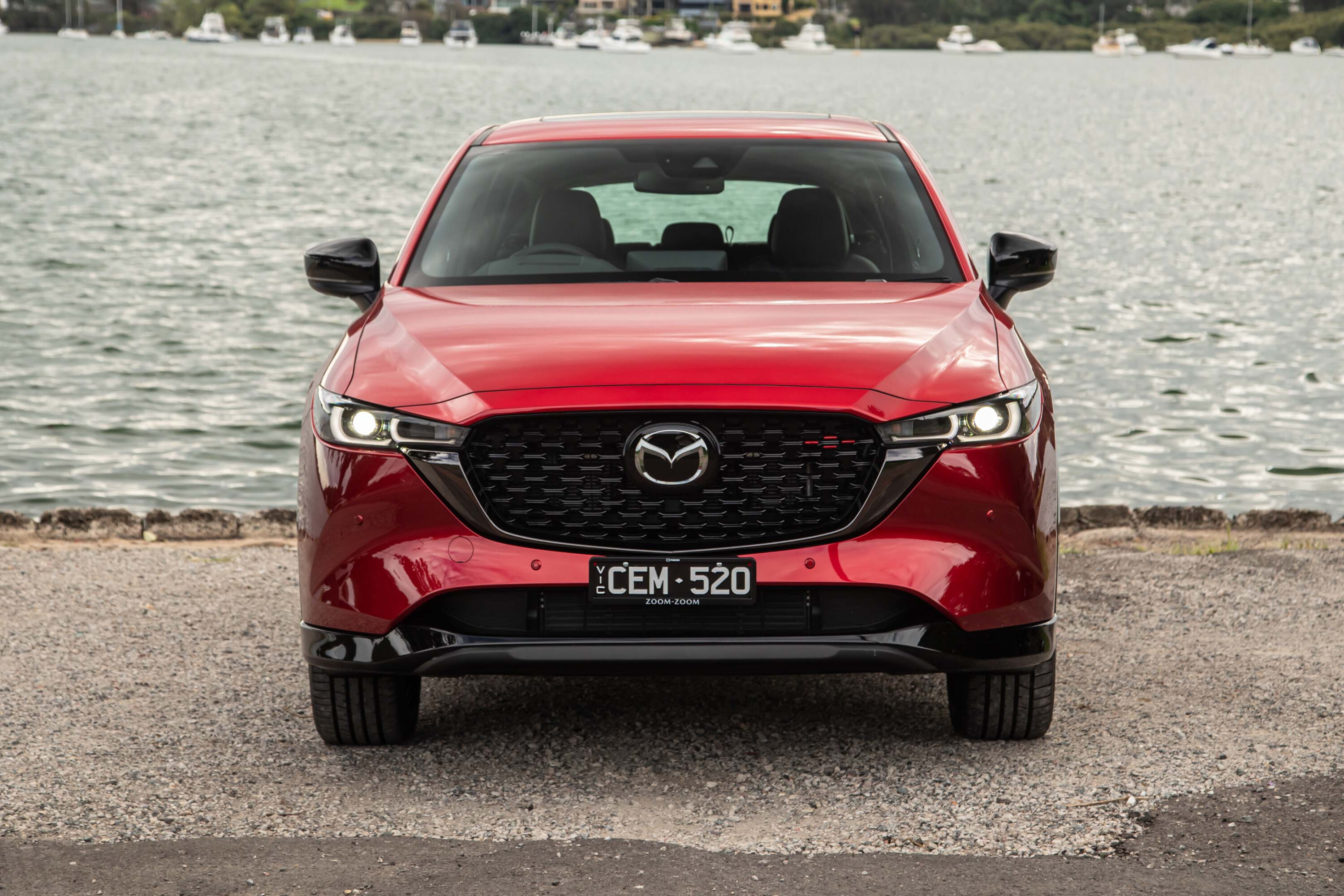
The Mazda has long been the dynamic benchmark in this part of the segment (the Tiguan wins further up the price tree) and remains a lovely car to look at and drive.
A Nissan X-Trail ST is quite a bit bigger and, like the CX-5, features a 2.5-litre engine while matching the Toyota’s continuously variable transmission (CVT). The X-Trail has a lot going for it, with a comfortable ride and all-wheel drive as standard, but for a few bucks more.
You’ll have to step down to the front-wheel drive to match beat the Honda’s all-in no-haggle price.
Interior comfort, space and storage
The ZR-V has a really, really nice cabin with some classic Honda thoughtfulness.
It’s classy, too, with a strip of hexagonal grille-like trim to break up the dash. The climate controls look great and are really nice to use, as is most of the switchgear, which is all well-weighted and nicely finished. Apart from the slightly too-tall gear shifter.
You have two cup holders, a cut-out underneath the console for phones or odds and ends, a tray for your phone under the HVAC controls and bottle holders in the doors.
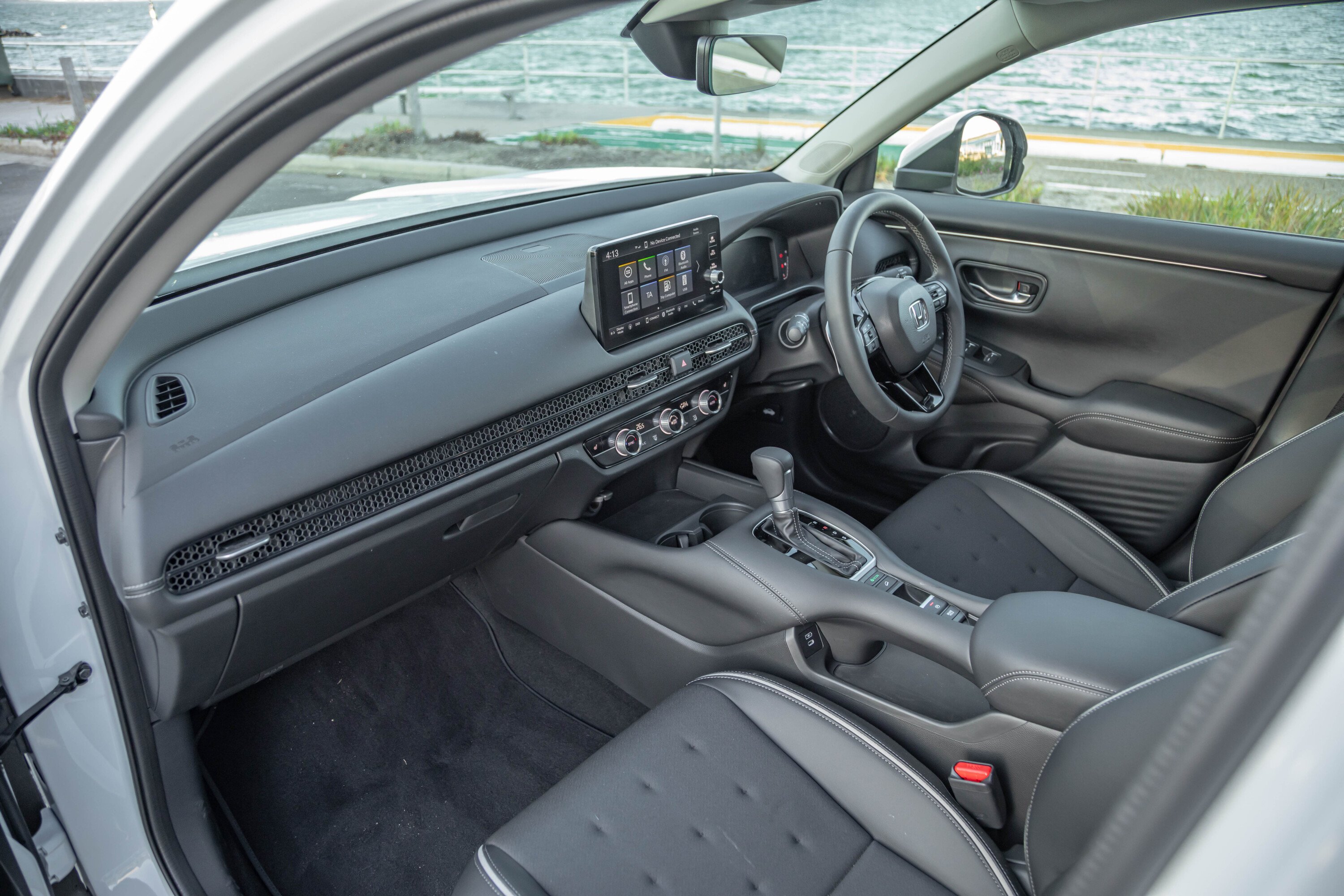
I also prefer the cloth inserts in the seats over the leather in the LX and have a sneaking suspicion that I’d prefer the cloth-only trim in the X.
Rear-seat occupants also do very nicely, with comfortable seats, a good amount of headroom and legroom and even their own air vents. At 180cm tall, I can sit comfortably behind my driving position and figure I’d be quite happy here for a long trip. Taller people have been known to be reasonably happy for journeys in the back of a ZR-V.
An armrest with cup holders is provided, as are two USB-C ports to go with the pair in the front (one each of USB-A and USB-C) and bottle holders in the doors. The ZR-V doesn’t have a sunroof but there’s plenty of glass area besides so it is light and airy in the cabin.
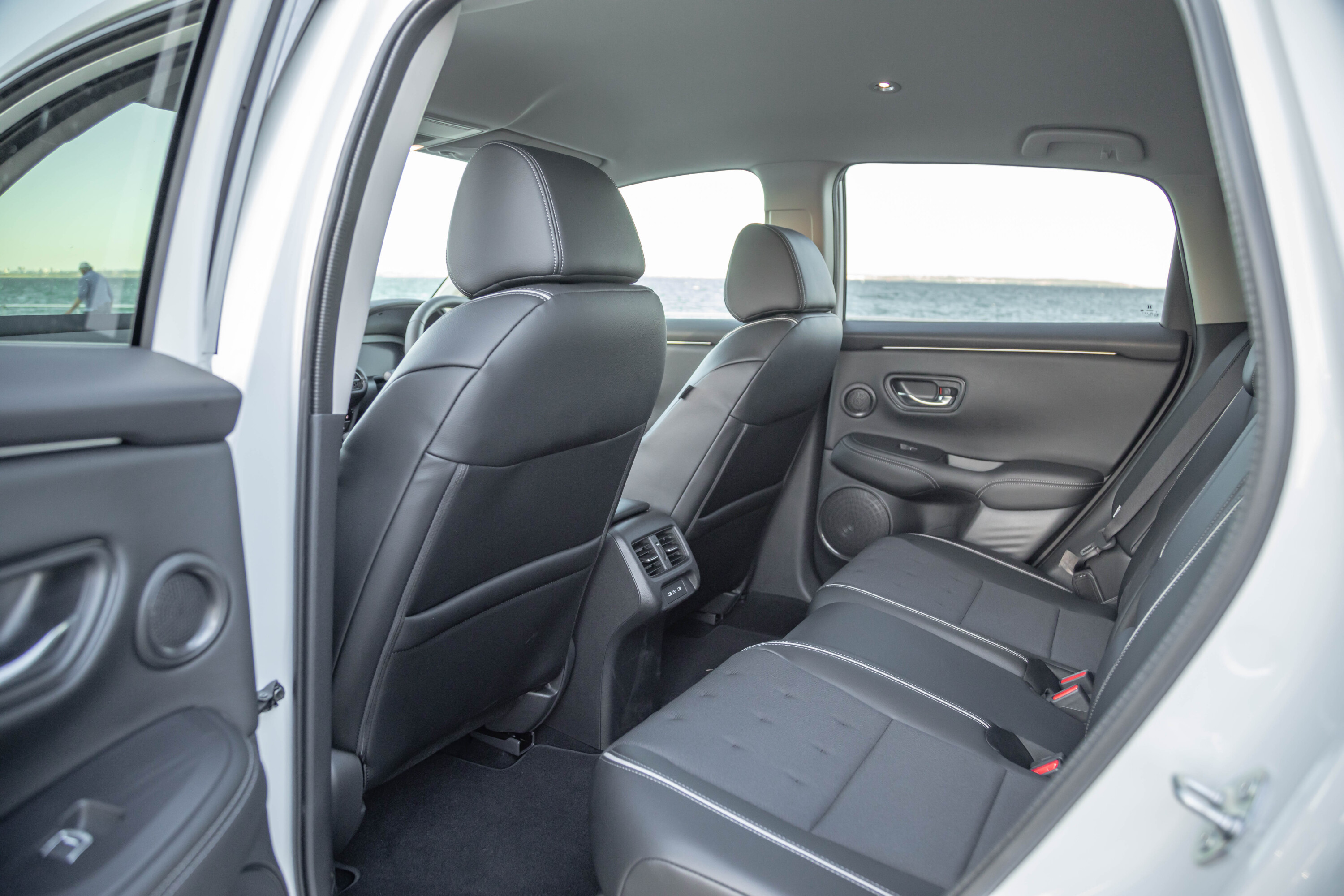
It falls apart slightly when you get to the boot, which is 380 litres.
That’s smaller than the old HR-V’s boot so you can see the design team went for occupant space over cargo capacity.
The boot is a good shape, though, with little trays cut out of either side for slipping in bits and pieces so they don’t roll around.
It’s completely eclipsed by everything else in the medium SUV segment, including the CX-5 that looks reasonably large in this company at 442 litres. The RAV4 and Tiguan are half as big again. But 380 litres isn’t bad if you’re not intending to put a punishing amount of gear in this car.
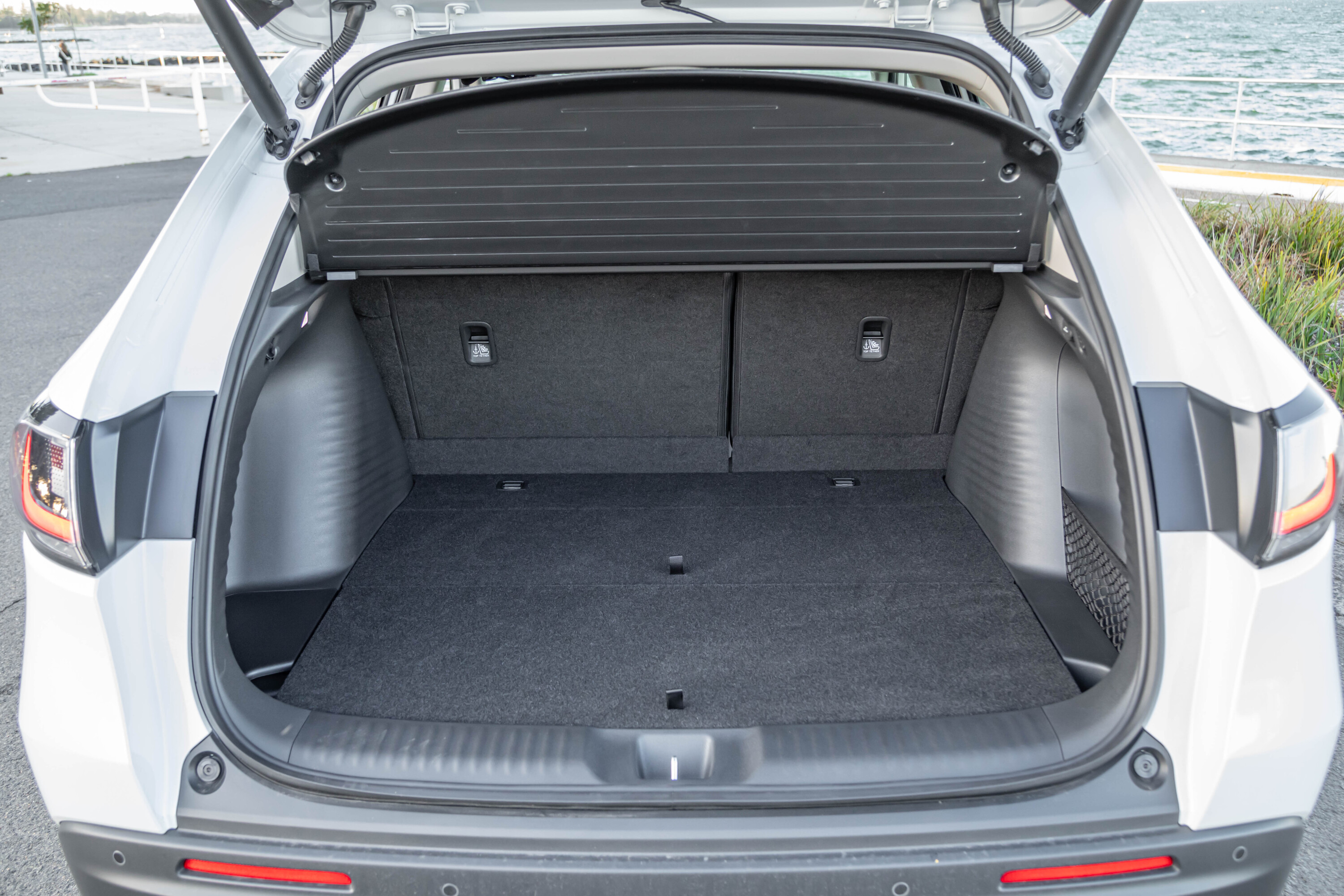
What is it like to drive?
Honda made a name for itself in the nineties for two things – completely bananas high-revving sports cars, and effortlessly pleasant everything-else cars.
The ZR-V certainly falls into the latter, which is obviously for the best. The 1.5-litre turbo-petrol engine is lifted straight from the Civic which makes sense because the ZR-V is basically a Civic underneath its sheet metal.
| 2023 Honda ZR-V VTi-L drivetrain | |
|---|---|
| Engine | 1.5-litre turbocharged four-cylinder |
| Transmission | continuously variable |
| Power | 131kW @ 6000rpm |
| Torque | 240Nm @ 1700rpm |
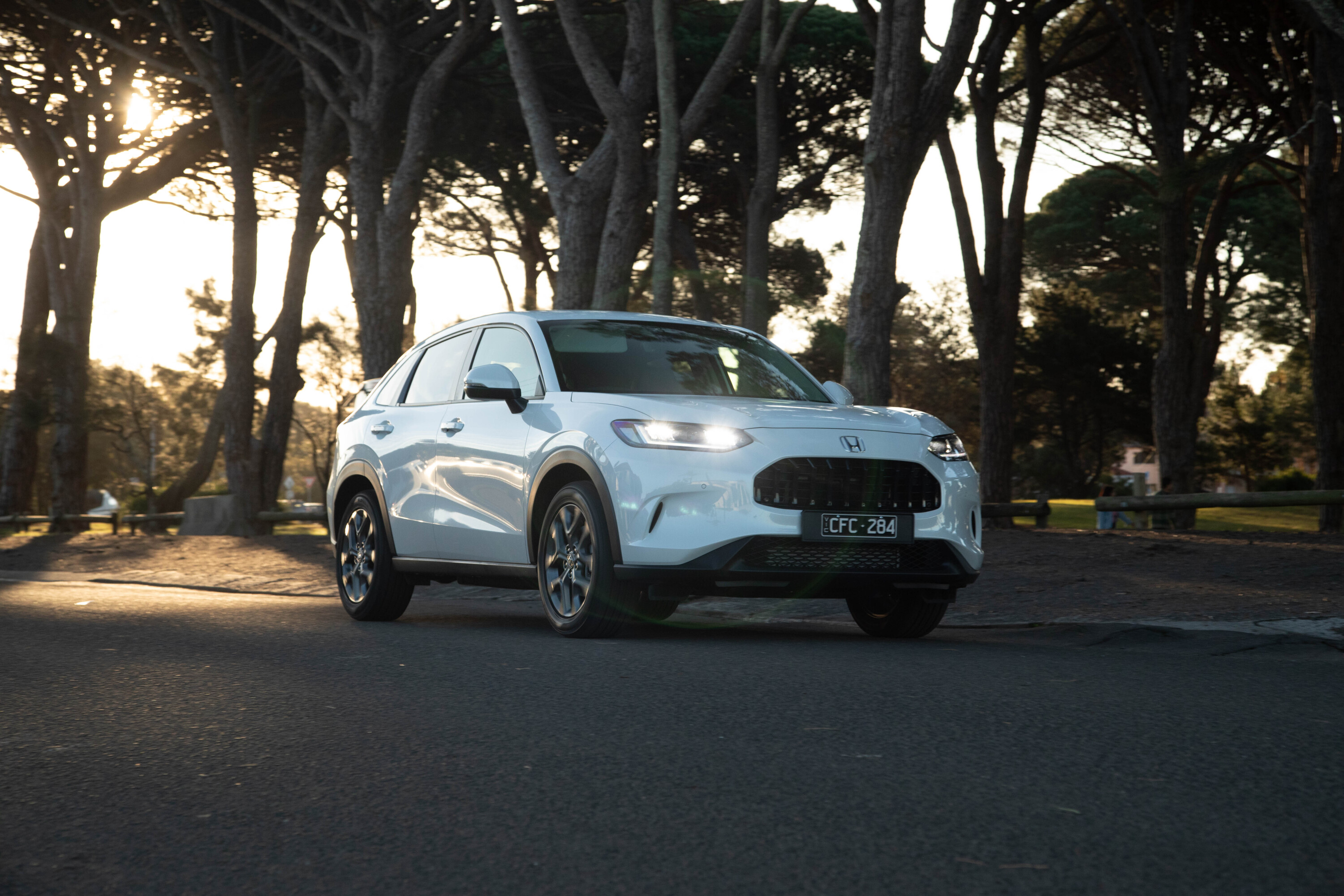
The 131kW is about right for the segment while the 240Nm is also about right.
Both are fed to the road via a CVT to the front wheels. These are also about right. It’s almost like everyone agreed on a formula.
As time marches on and age wearies me, I am noticing a general improvement in the way CVTs are calibrated in cars, particularly those from Japan and Korea. Honda has certainly got its head around this type of transmission in the petrol ZR-Vs, with a strong, positive pickup from a standstill.
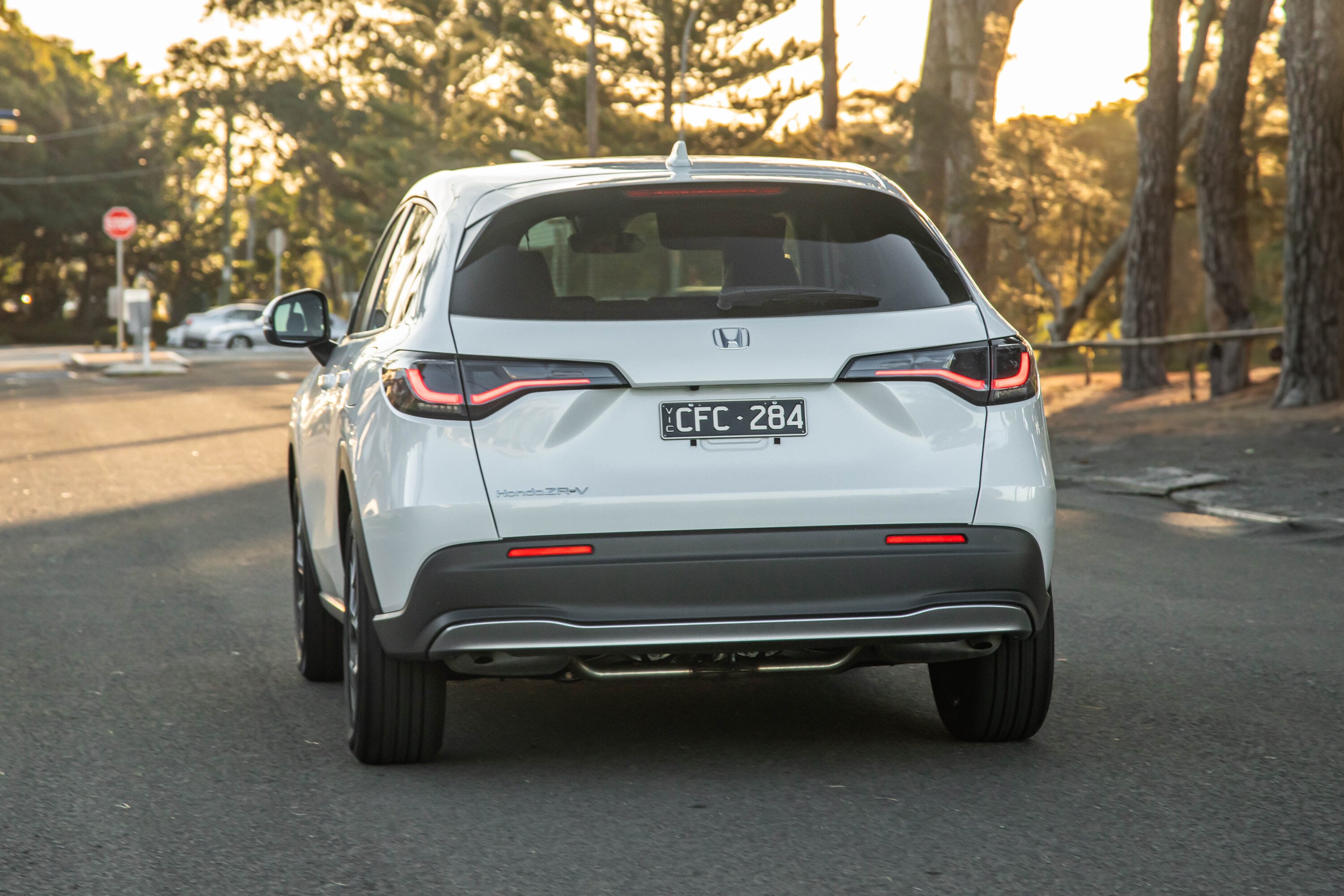
The ZR-V has quite a sprightly step up to about 60km/h, which works very nicely around town.
Free of irritating lawnmower effects, the engine keeps itself to itself for the most part. It’s not slow, either, which sets it apart from slack-feeling non-hybrid RAV4s.
The steering is light and reasonably direct for an SUV, meaning you’re not twirling your arms in traffic or manoeuvring around. It’s also a surprising amount of fun on a winding road.
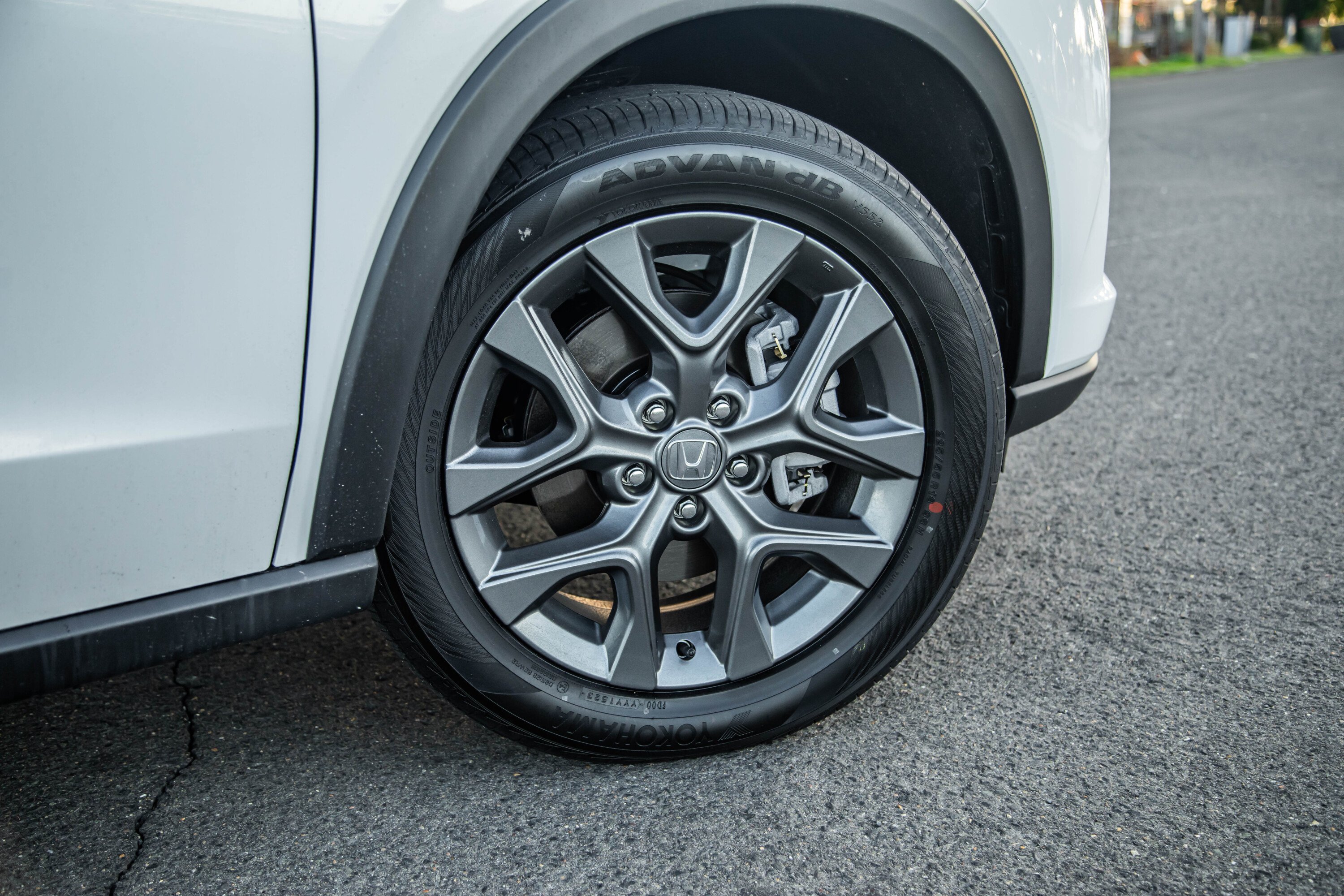
It’s also better as speed rises.
An unfortunate side effect of the big wheels is that the ride is a bit fidgety on more urban surface types than you might expect.
It’s not noisy, but there’s a bit more movement that finds its way from the road to your backside which could prove a little tiring during a long day behind the wheel.
For me, the overall package makes up for it with the handling and the responsive driveline so I’ll wear the low-speed ride because the ZR-V excels in every other area.
If any of the terms in this section have left you scratching your head, these articles will help bring you up to speed!
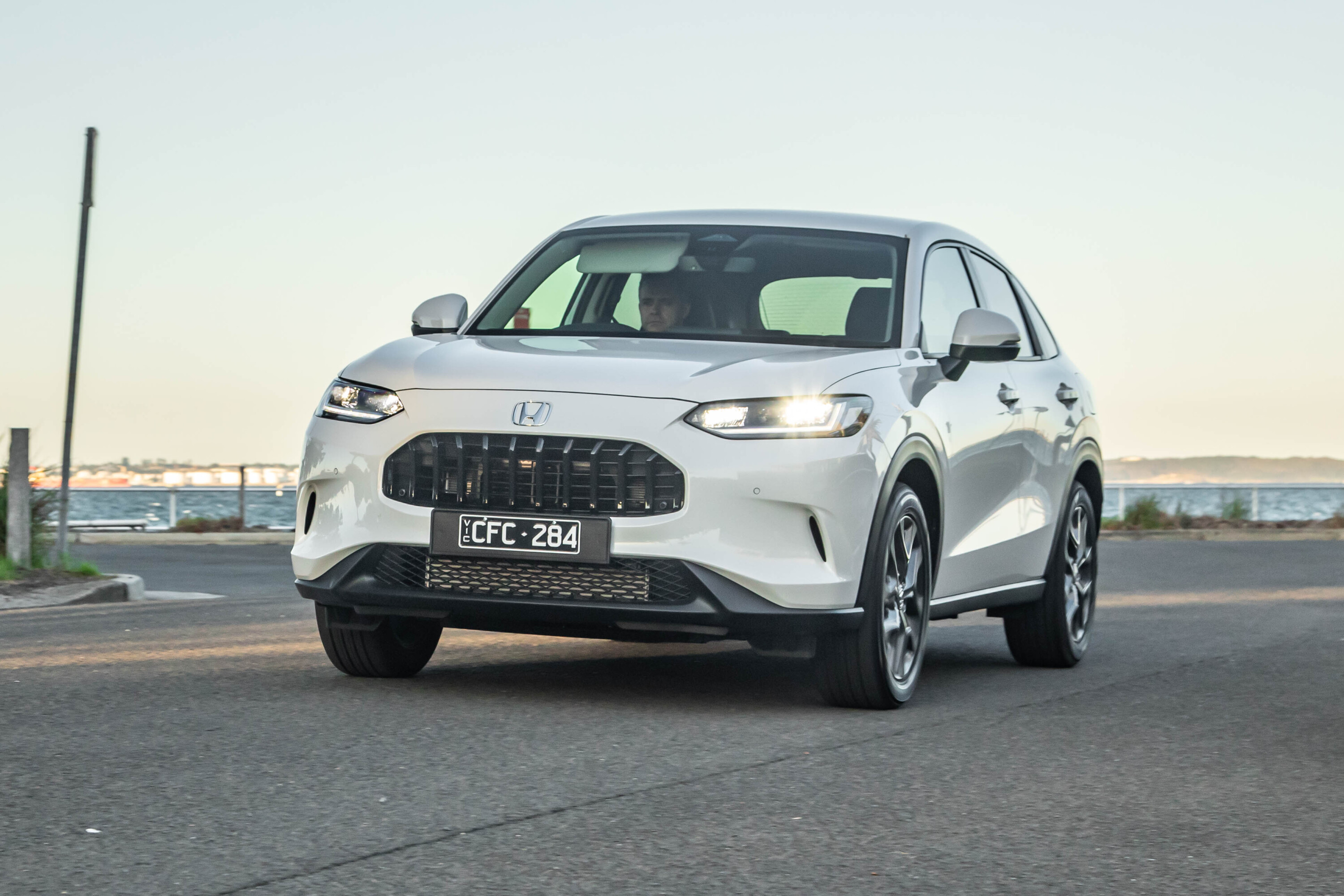
- What is a Powertrain or Drivetrain?
- Power vs torque
- Car suspension explained
- Automatic transmissions (‘gearboxes’) explained
- Chassis control systems explained
- Car vs Ute vs SUV: How the vehicle you buy should guide the way you drive
As with the LX, the L did quite well against the ADR combined cycle figure, delivering an identical 7.9L/100km versus the official figure of 7.2L/100km.
It did enjoy the same test loop as the LX so it was good to see consistency across two still very new cars. I didn’t expect any different from a turbo Honda engine.
| 2023 Honda ZR-V VTi-L fuel consumption | |
|---|---|
| Fuel consumption (claimed) | 7.2L/100km |
| Fuel consumption (on test, indicated) | 7.9L/100km |
| Fuel tank capacity | 57 litres |
| Real world range | 721km |
| Fuel type | 91 RON |
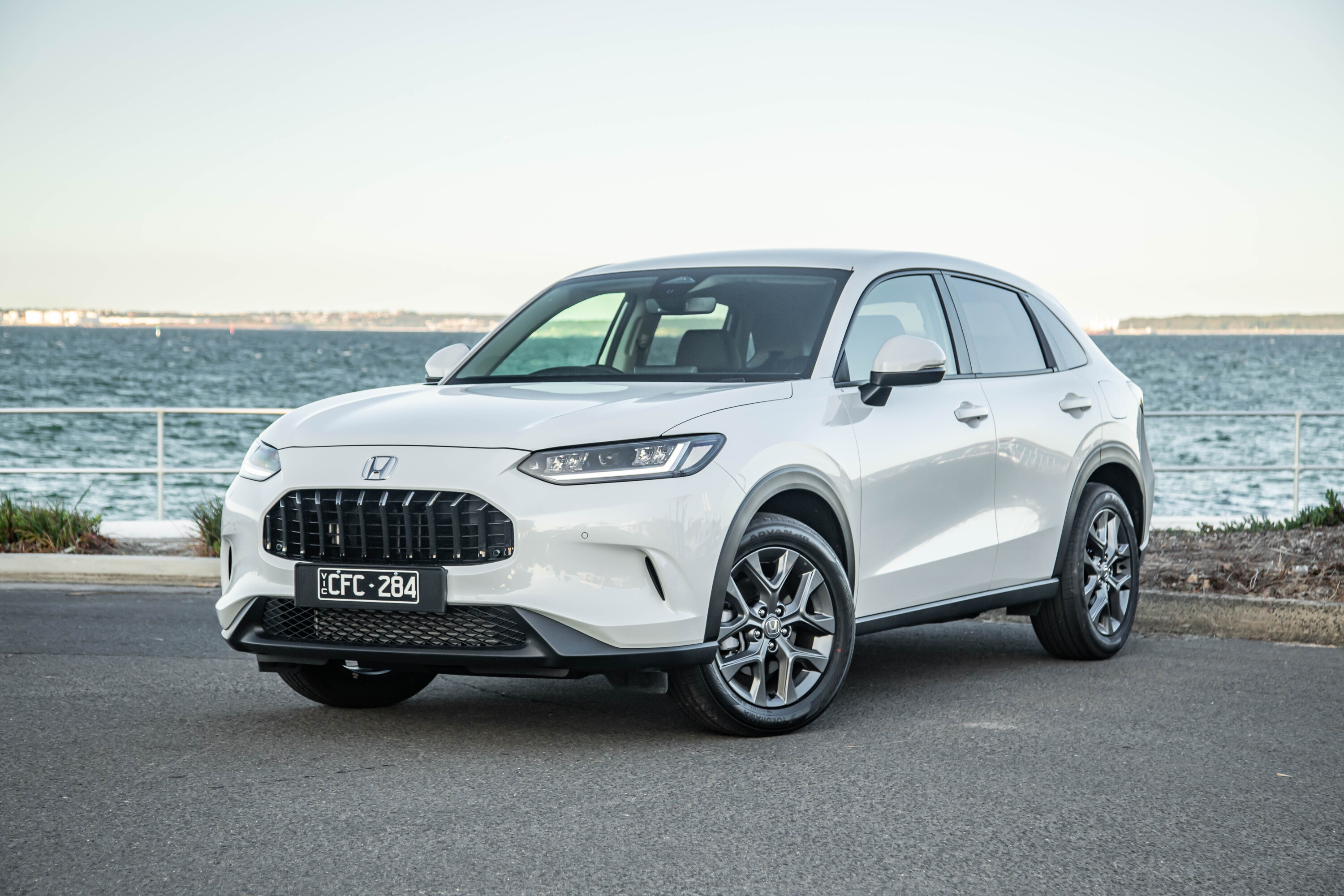
How safe is it?
ANCAP has got its hands on the ZR-V and chucked it at the wall, awarding it a full five stars.
That was to be expected given the huge number of airbags. Repeating my earlier consternation, there is no reverse cross-traffic alert or blind-spot monitoring in the X or L.
The rear seats feature two ISOFIX points and three top tether anchors. If you’ve looked at an HR-V and not been impressed with its two top tether points, the ZR-V has you covered for not a lot more money.
| 2023 Honda ZR-V VTi-L safety features | |
|---|---|
| Eleven airbags | Traction and stability controls |
| Traffic sign recognition | Lane departure warning |
| Driver attention detection | Rear seat reminder |
| Lane-keep assist | Forward AEB (vehicle, pedestrian, cyclist) |
Warranty and running costs
Honda offers a five-year/unlimited-kilometre warranty with a five-year capped-price servicing regime.
Each service costs $199 but if you do more than 10,000km a year, the price advantage it has over just about everything in the segment is lost.
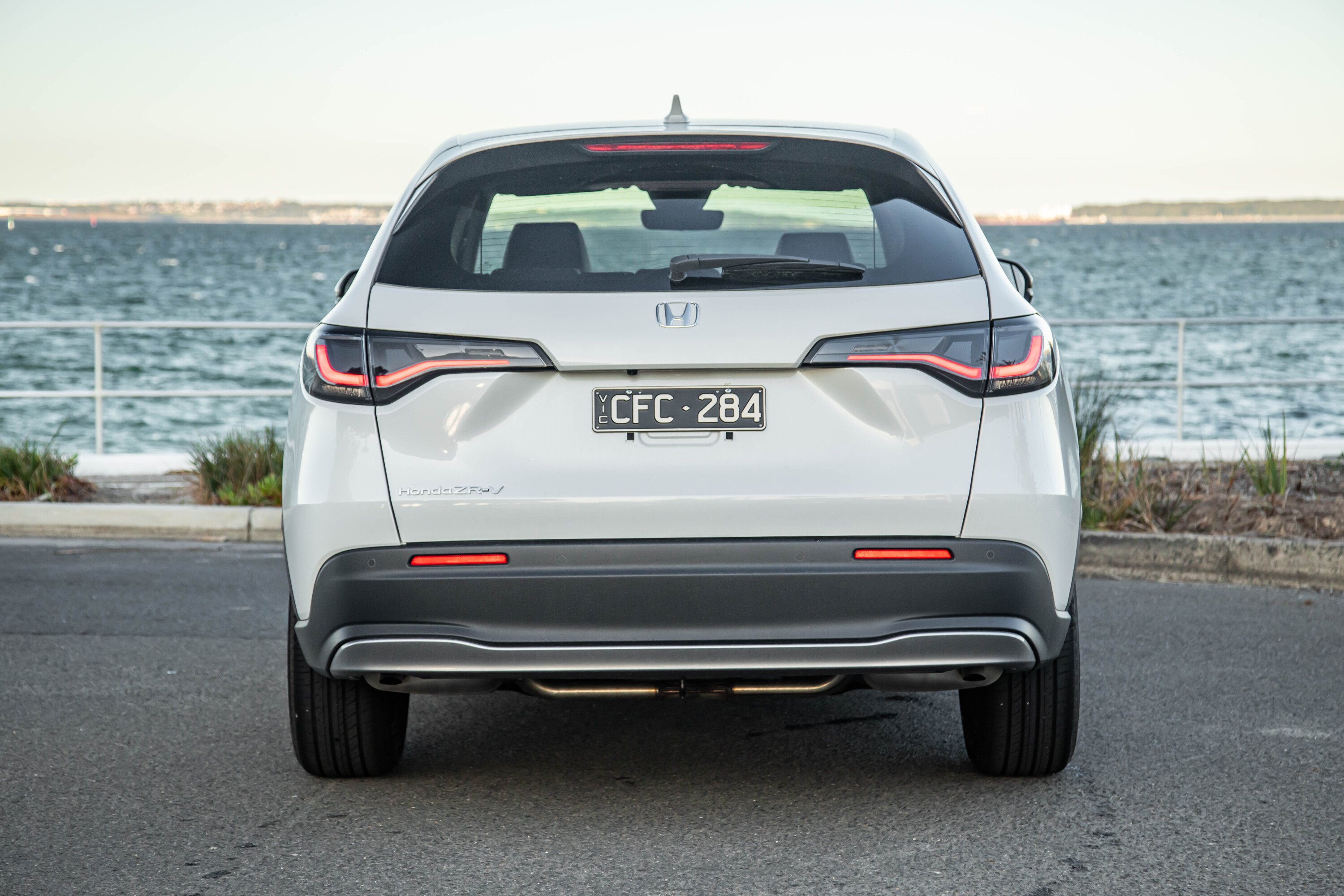
VERDICT
I’ve said a lot of nice things about the middle child but I’m pretty sure I could say about 95 per cent of these things about the first child, the VTi-X.
I can’t say for sure but from a value perspective, I’m not sure the L cuts the mustard.
Hands-free tailgate, a bit of window tinting, paddle shifters you don’t need; it’s all details and not a heck of a lot of substance for the extra three grand.
On its own four wheels, it’s the ZR-V is a terrific car and I’m sure that if you don’t need a huge boot, this will be a great car for a young family. It looks good, is quiet, fun to drive and cheap to run.
I really like its ratio of physical footprint to interior space and it feels like an on-form Honda. But definitely have a good long think about that three grand.
| 2023 Honda ZR-V VTi-L specifications | |
|---|---|
| Price | $43,200 drive-away |
| Drivetrain | |
| Engine | 4cyl, 1.5-litre, DOHC, turbo-petrol, direct-injected |
| Drive | front-wheel |
| Power | 131kW |
| Torque | 240Nm |
| Gearbox | continuously variable |
| Chassis | |
| L/W/H/Wu2013B | 4568/1840/1620/2655mm |
| Track (F/R) | 1591/1605mm |
| Weight (tare) | 1439kg |
| Boot | 370L |
| Fuel/tank | 57L |
| Economy (combined ADR81/02) | 7.2L/100km |
| Suspension | Front: struts, stabiliser bar. Rear: multi-link stabiliser bar |
| Steering | rack-assisted progressive electric power steering, 2.4 turns lock-lock |
| Front brakes | ventilated rotors |
| Rear brakes | solid rotors |
| Tyres | Yokohama Advan dB V552 |
| Tyre size | 225/55R18 |
| Safety | |
| ANCAP rating | five stars |
| 0-100km/h | 9.0 seconds (est) |
Score breakdown
Things we like
- Lovely interior
- Fun chassis
- Impressive driveline
Not so much
- Short service intervals
- Fidgety urban ride
- Missing safety gear
We recommend
-
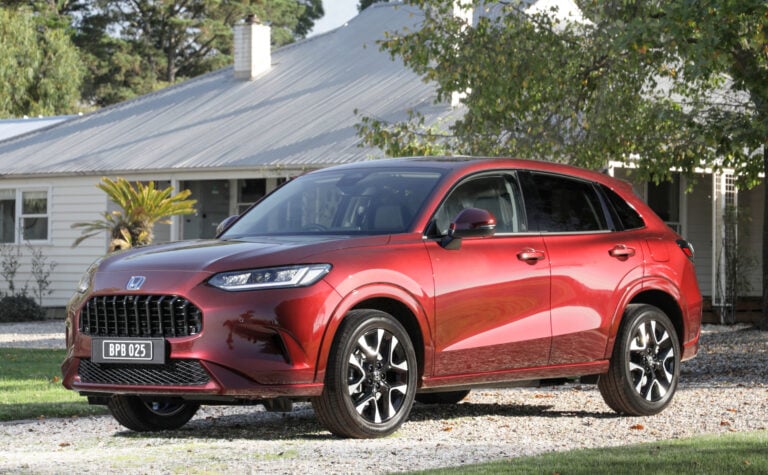 News
News2023 Honda ZR-V pricing and features
Honda has confirmed local details for its new Mazda CX-5-rivalling ZR-V medium SUV, with available petrol or hybrid power
-
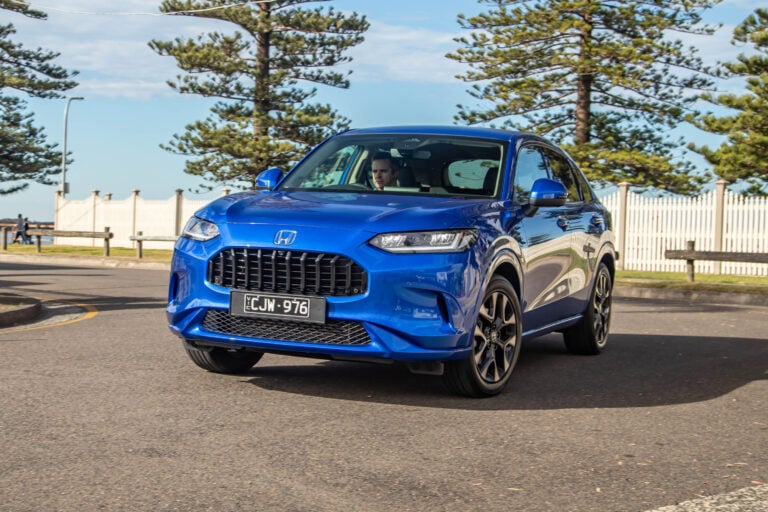 Reviews
Reviews2023 Honda ZR-V VTi-LX review
Top-spec petrol ZR-V has a big job on its hands to gain some much-needed sales momentum for Honda. Can it do it?
-
 News
NewsNew car calendar 2026: All the new cars coming to Australia next year
Here’s the WhichCar by Wheels guide to all the new cars that will launch in Australia in 2026. Check back in regularly for updates...


